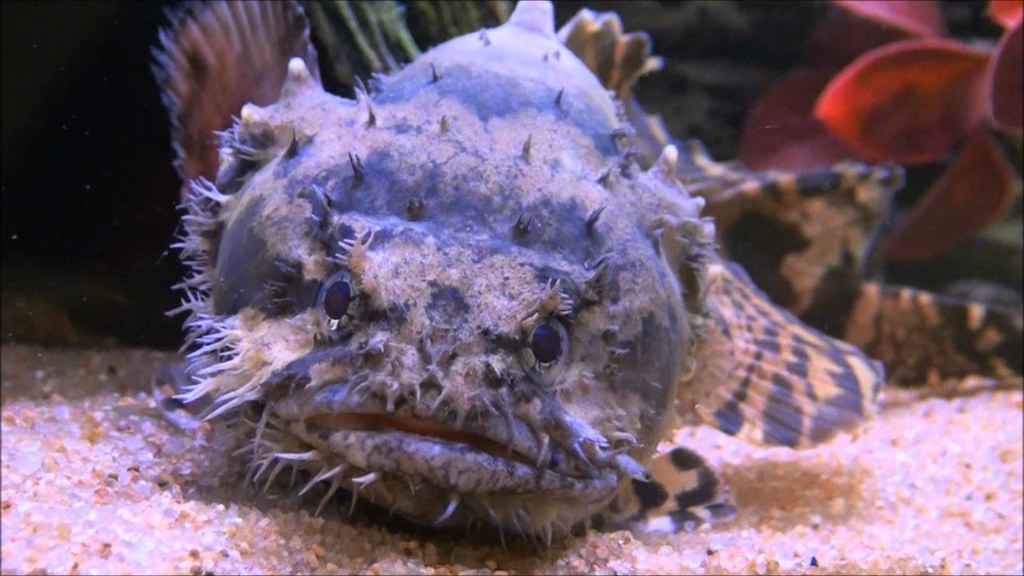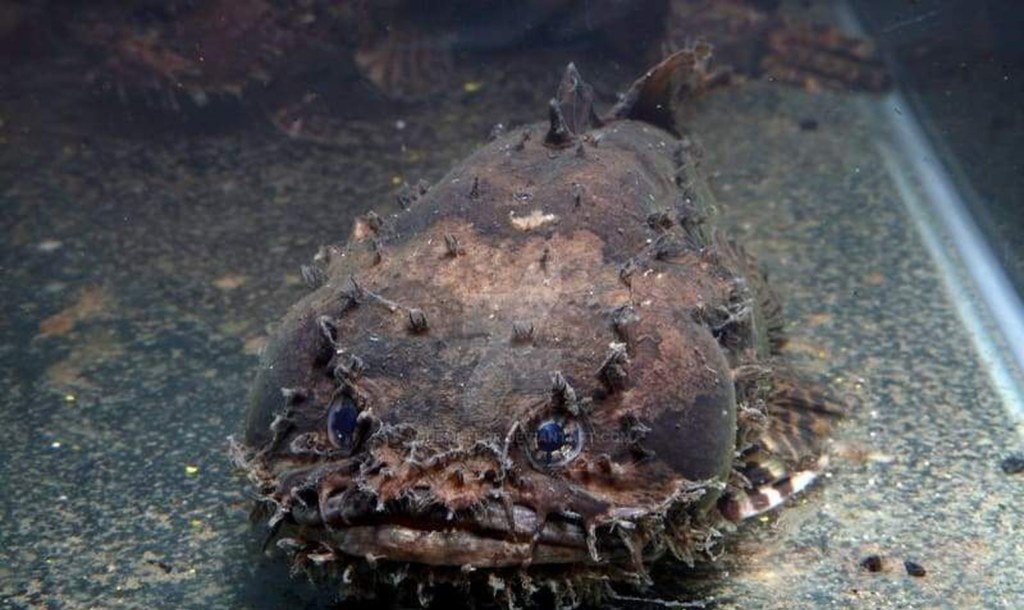Unveiling The Majestic Freshwater Lion Fish: Dive Into The World Of Aquatic Wonders!
Freshwater Lion Fish: A Fascinating Aquatic Creature
Welcome, Lions Enthusiast! Today, we dive into the mesmerizing world of the freshwater lion fish. These captivating creatures have long been a subject of fascination for both marine enthusiasts and curious onlookers alike. Join us on this adventure as we explore the intriguing characteristics, habitat, and behavior of the freshwater lion fish.
Introduction
The freshwater lion fish, scientifically known as Pterois antennata, is a stunning species that belongs to the family Scorpaenidae. It is native to the Indo-Pacific region, primarily found in the coastal waters of the Indian Ocean. Unlike its marine counterpart, the saltwater lion fish, the freshwater lion fish has evolved to thrive in freshwater environments such as rivers, lakes, and ponds.
2 Picture Gallery: Unveiling The Majestic Freshwater Lion Fish: Dive Into The World Of Aquatic Wonders!


Freshwater lion fish are renowned for their vibrant colors and elaborate fin displays. Their long, filamentous fins, resembling a lion’s mane, give them their name. These fins are not only visually striking but also serve a functional purpose in attracting mates and deterring potential predators.
Despite their beauty, it is crucial to note that freshwater lion fish possess venomous spines on their dorsal, pelvic, and anal fins. While their venom is not usually lethal to humans, it can cause significant pain and discomfort. Therefore, it is essential to handle these creatures with caution and respect their natural habitats.

Image Source: predatoryfins.com
Now, let’s dive deeper and explore the fascinating details of the freshwater lion fish, including their habitat, behavior, and unique adaptations.
Habitat and Distribution
Freshwater lion fish are primarily found in the tropical and subtropical regions of the Indo-Pacific. They inhabit a wide range of freshwater ecosystems, including rivers, lakes, and flooded forests. These adaptable creatures can tolerate various water conditions, ranging from slow-moving rivers to stagnant ponds.
Within their chosen habitats, freshwater lion fish often establish territories near underwater rock formations, submerged vegetation, or crevices where they can seek shelter and ambush their prey. These areas provide the lion fish with both protection and an optimal location for hunting.
Behavior
Freshwater lion fish are known for their solitary nature. They are stealthy hunters, patiently stalking their prey before launching a lightning-fast strike. Their diet primarily consists of small fish, crustaceans, and aquatic insects. With their venomous spines, they immobilize their prey and engulf them whole.

Image Source: yourfishstore.com
When threatened, freshwater lion fish can display aggressive behavior. They extend their spines and spread their fins, creating an intimidating display to deter potential predators. It’s a remarkable sight that showcases their natural defense mechanisms.
Reproduction
During the breeding season, freshwater lion fish engage in intricate courtship rituals. Males attract females by showcasing their vibrant colors and elaborate fin displays. Once a pair mates, the female produces numerous eggs that are externally fertilized by the male. The male then guards the eggs until they hatch, ensuring their safety and survival.
Adaptations
Freshwater lion fish have evolved several fascinating adaptations that allow them to thrive in their unique environment. Their long, slender bodies enable them to maneuver swiftly through the water, making them efficient hunters. Additionally, their venomous spines serve as both a defense mechanism and a means to subdue prey.
Furthermore, the elaborate fin displays of freshwater lion fish play a crucial role in their reproductive success. Males with more vibrant colors and impressive fin displays are more likely to attract females, increasing their chances of successful mating.
Advantages and Disadvantages of Freshwater Lion Fish
Advantages
1. Natural Pest Control: Freshwater lion fish feed on small fish, crustaceans, and aquatic insects, helping to control their populations in ecosystems and maintain ecological balance.
2. Aesthetic Appeal: Their vibrant colors and elegant fin displays make freshwater lion fish a visually captivating addition to aquariums and aquatic displays.
3. Educational Value: Studying freshwater lion fish provides valuable insights into the adaptations, behavior, and ecological role of these fascinating creatures.
4. Ecotourism Potential: The presence of freshwater lion fish in certain areas can attract tourists interested in observing and learning about these unique species, contributing to local economies.
5. Research Opportunities: Freshwater lion fish offer scientists and researchers a valuable subject for studying evolutionary adaptations, venomous mechanisms, and ecological dynamics.
Disadvantages
1. Invasive Species: In some regions, the introduction of freshwater lion fish as an exotic pet or accidental release has led to their establishment as an invasive species, posing a threat to native aquatic ecosystems.
2. Predation on Native Species: As opportunistic predators, freshwater lion fish may prey on native fish and invertebrate species, potentially disrupting the balance of local ecosystems.
3. Venomous Nature: While freshwater lion fish’s venom is generally not lethal to humans, accidental stings can cause significant pain and discomfort, especially for individuals with allergies or compromised immune systems.
4. Overfishing for Aquarium Trade: Due to their aesthetic appeal, freshwater lion fish are often sought after for the aquarium trade. Overfishing can deplete their populations in the wild and lead to unsustainable practices.
5. Habitat Degradation: Environmental factors such as pollution, habitat destruction, and climate change can negatively impact the freshwater lion fish’s natural habitats, reducing their populations and overall biodiversity.
Frequently Asked Questions (FAQs)
1. Are freshwater lion fish suitable for home aquariums?
Yes, freshwater lion fish can be kept in home aquariums; however, they require specific care, such as a spacious tank, proper filtration, and a diet consisting of live or frozen foods.
2. Can freshwater lion fish survive in brackish water?
No, freshwater lion fish are adapted to thrive in purely freshwater environments. They cannot survive in brackish water or marine conditions.
3. Are freshwater lion fish aggressive towards other tank mates?
Freshwater lion fish can be territorial and aggressive towards smaller fish or those with similar body shapes. Careful consideration should be given when selecting tank mates to ensure compatibility.
4. How long do freshwater lion fish live?
With proper care, freshwater lion fish can live up to 10 years or more in captivity. Their lifespan in the wild may vary depending on environmental conditions and predation.
5. Can I handle a freshwater lion fish without getting stung?
It is not advisable to handle freshwater lion fish directly, as their venomous spines can cause painful stings. If necessary, use appropriate tools or wear protective gloves to ensure your safety.
Conclusion
In conclusion, the freshwater lion fish is a captivating species that flourishes in freshwater environments. Its vibrant colors, elaborate fin displays, and natural adaptations make it a truly remarkable creature to behold. While there are both advantages and disadvantages associated with these aquatic marvels, it is crucial to appreciate their natural habitats, promote responsible ownership, and conserve their populations for future generations to marvel at.
So, Brave Readers, let us continue to explore and appreciate the beauty and diversity of our aquatic world, ensuring the well-being and preservation of mesmerizing creatures like the freshwater lion fish.
Final Remarks
The information provided in this article is intended for educational purposes only. It is essential to respect local regulations and guidelines when interacting with freshwater lion fish or considering their presence in personal aquariums. Always consult with experts and responsible sources for accurate, up-to-date information regarding the care, conservation, and ethical considerations associated with freshwater lion fish and other aquatic species.
This post topic: Lions


